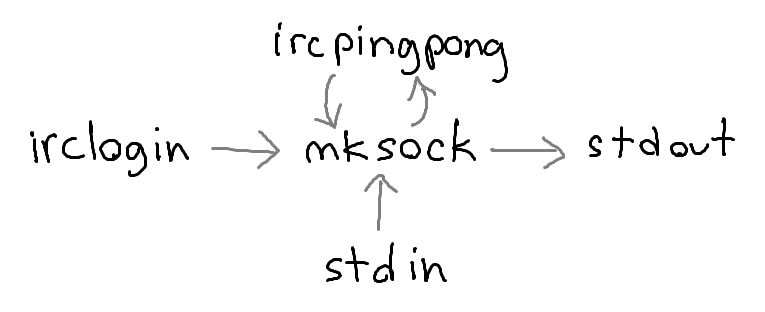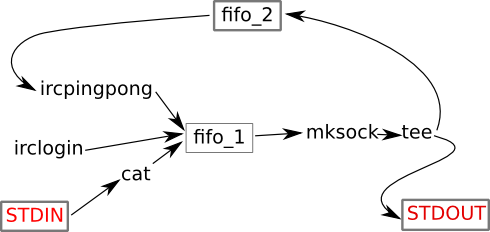What is the cleanest (simplest, most efficient, shortest, quickest, easiest, most elegant) way to create a non-linear pipeline like this in Bash?
I have three commands: mksock, irclogin, and ircpingpong. I want to pipe stdin, irclogin, and ircpingpong into mksock, and pipe mksock into stdout and ircpingpong. This means that mksock and ircpingpong are in a loop. I drew a diagram:
irclogin only needs to be run once and be the first input into mksock. After that, ircpingpong, and stdin should be accepted at any time. I am currently using pipes and a temporary file like this:
#!/bin/bash
server=127.0.0.1
port=6667
infifo=/tmp/ircin
outfifo=/tmp/ircout
pongfifo=/tmp/ircpong
rm $infifo
rm $outfifo
rm $pongfifo
mkfifo $infifo
mkfifo $outfifo
touch $pongfifo
( irclogin | cat - $infifo & tail -f $pongfifo; ) | mksock $server $port | tee $outfifo | stdbuf -oL ircpingpong > $pongfifo &
cat < $outfifo &
cat > $infifo
pkill tail
This works, but I want to know if there is a better way to do this. It bothers me that I am using a file rather than a pipe for looping back from ircpingpong to mksock using tail. Using a pipe didn't work because, to my understanding, something is written to the pipe before tail -f starts reading from it, and so it misses it.
It also bothers me that I have to kill tail at the end of the script, because it doesn't stop on it's own and would leave the socket connected even after the script has ended.


